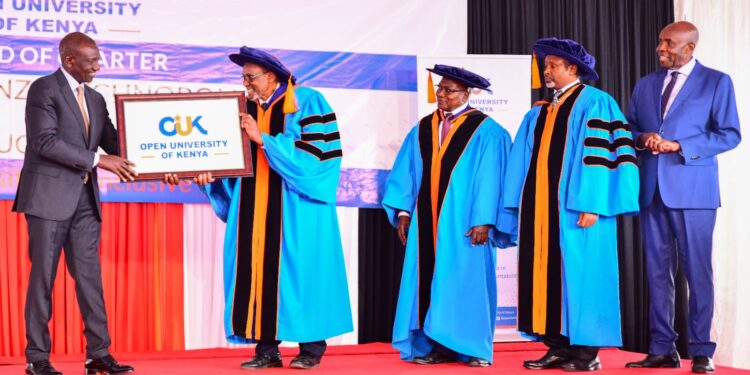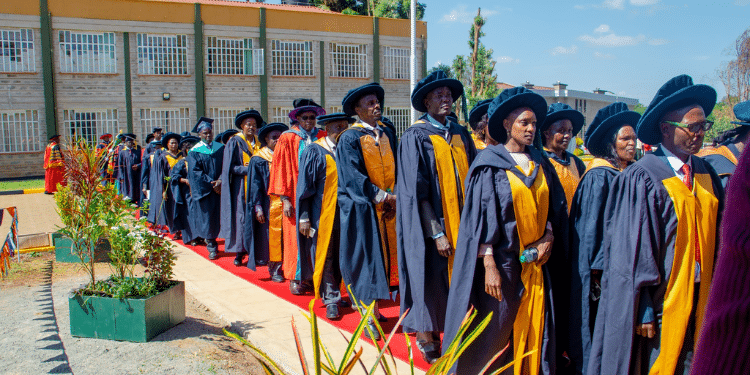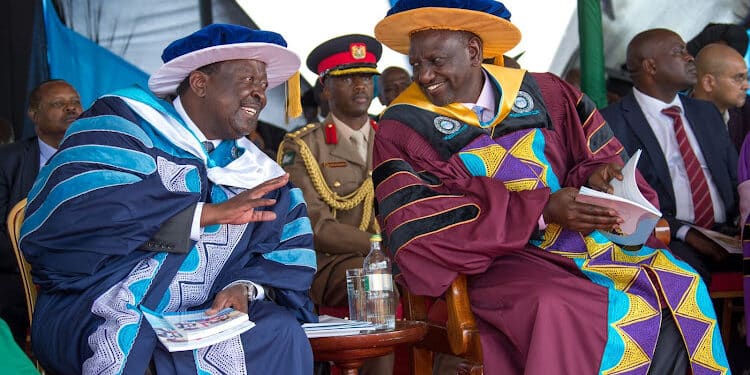In the last decade, Artificial Intelligence (AI) and automation have emerged as defining forces in reshaping industries, economies, and employment patterns across the globe.
These technological advancements are transforming how tasks are performed and fundamentally altering the nature of work.
As AI-driven systems take over routine, repetitive jobs and automation becomes pervasive, the challenge of preparing graduates for a rapidly evolving workforce is growing more urgent.
Educational institutions, policymakers, and employers must reimagine how graduates can acquire the skills, adaptability, and mindset necessary to thrive in this new era.
In the 1970s, the introduction of calculators in classrooms sparked controversy and concern among educators. Many feared that relying on calculators would undermine fundamental math skills, reducing students’ ability to solve problems manually.
Fast forward to today, and calculators have become indispensable educational tools, streamlining complex calculations and enabling deeper exploration of mathematical concepts.
Now, as of November 2022, ChatGPT and other AI tools are emerging as the newest innovations in the educational landscape.
Much like the calculator revolutionized math instruction, AI is set to enhance educational outcomes across all disciplines by optimizing learning processes, improving efficiency, and providing personalized support to students.
Just as the calculator once seemed disruptive but ultimately transformed math education, AI promises to reshape the future of learning, creating new opportunities for students and educators alike.

The Shifting Landscape of Employment
The rise of AI and automation has profoundly impacted the job market. According to a 2020 World Economic Forum report, by 2025, machines are expected to displace around 85 million jobs globally while creating 97 million new roles.
Also Read: Cost Of Lecturers’ Strikes in Kenya and Its Impact on Preparing Graduates for World of Work
The jobs that will disappear involve predictable, manual, or clerical tasks that machines can handle more efficiently. For example, manufacturing, retail, and customer service sectors are seeing significant job displacement as automation takes over repetitive tasks like assembly line work, order processing, and even basic customer inquiries.
However, technologies demand new jobs, especially those requiring cognitive skills, creativity, and human oversight. These include roles in AI development, data science, machine learning, and digital marketing, as well as positions requiring strong problem-solving, decision-making, and emotional intelligence skills.
The dynamic dual challenge for graduates is that they must develop the technical competencies needed to engage with AI and automation and cultivate soft skills that set them apart in tasks where human abilities still surpass machine efficiency.
Reimagining Education for the AI Age
In response to the rise of AI, higher education institutions must evolve to better prepare students for the workforce. Traditional curricula that prioritize memorization and routine problem-solving are no longer sufficient. Instead, educational programs need to be reoriented to foster a blend of technical, interdisciplinary, and soft skills.
1. Digital Literacy and Technical Skills
Graduates entering the workforce today will increasingly need to be proficient in technologies related to AI and automation.
This includes not only understanding how to use these technologies but also grasping the underlying principles of how they work.
Training in fields like data analysis, coding, machine learning, and cybersecurity is becoming essential, even for students in non-technical disciplines.
Universities are responding to courses and degree programs in these areas, often in partnership with industries that can provide hands-on experience.
2. Interdisciplinary Learning
AI and automation are not confined to any single sector; their influence spans industries as diverse as healthcare, finance, education, logistics, and what have you.
Therefore, graduates benefit from interdisciplinary training that equips them to apply AI solutions across a range of contexts.
Combining knowledge from computer science, engineering, ethics, and business enables students to innovate and solve complex problems that demand more than a single-discipline approach.
Institutions offering interdisciplinary programs are better at preparing students for a future where technology and domain expertise must merge.
3. Fostering Creativity and Innovation
Creativity remains one of the most valuable human attributes in the age of automation. While machines excel at executing tasks precisely, they cannot think outside the box or generate novel ideas.
Graduates who are creative thinkers, capable of approaching problems from multiple angles and innovating beyond established norms, will stand out.
Educational programs should emphasize project-based learning, collaboration, and design to nurture creativity and help students tackle real-world challenges in innovative ways.

4. Developing Emotional Intelligence and Soft Skills
Emotional intelligence and effective communication are critical soft skills that AI cannot replicate. As machines take over more technical tasks, human-centric skills such as empathy, adaptability, and interpersonal communication will become increasingly important, particularly in roles that involve collaboration, team management, and customer relations.
Employers will value graduates who can navigate the social complexities of the workplace, manage teams, and contribute to inclusive and innovative work environments.
On the same note, Integrating AI into every university course will produce graduates who are ready to thrive in today’s market, equipped with the skills to meet global demands.
By embedding AI across disciplines, universities enable students to harness its power in real-world applications—from precision agriculture and predictive healthcare analytics to financial inclusion and sustainable logistics.
AI’s role in optimizing processes and driving significant advancements is transformative, empowering graduates not only to address complex challenges but also to foster sustainable development worldwide.
Power of Partnerships
Take, for instance, the University of Nairobi, one of the universities in the sub-Saharan region that has integrated AI into its education system. They partnered with SAMA, a data annotation and model validation solution firm, to advance the generative AI ( GenAI) industry in Kenya.
The partnership aims to ensure UoN students and faculty gain exposure to the rapidly evolving GenAI environment by providing a unique platform for students to apply their knowledge in real-world settings and prepare them for the demands of the AI industry.
The university has also partnered with IBM and Google to offer AI and data science courses. These partnerships provide students with access to real-world AI applications, equipping them with practical skills that are highly sought after in the job market.
Strathmore University has also embraced AI to prepare students for the rapidly evolving workforce. Through its iLabAfrica, Strathmore collaborates with industry leaders like Mastercard Foundation and Caribou Digital, exploring the impact of AI in education and operations.
The university showcases AI projects that solve real-world problems, such as a chatbot for the insurance sector that analyzes data for quick decision-making and an AI-powered tool to streamline proposal writing for research grants.
Additionally, programs like the master’s in data science and Analytics equip students with in-demand skills, ensuring they are workforce-ready and competitive in AI-driven industries.
Lifelong Learning and Adaptability
One of the most important mindsets graduates can adopt is a commitment to lifelong learning. In a workforce driven by continuous technological advancement, the ability to learn new skills and adapt to emerging trends will be crucial.
The skills required today may not be the same in-demand five or ten years from now, making it essential for workers to engage in ongoing education and professional development.
Also Read: Open University of Kenya Announces Intakes; How to Enroll & Cost of Programs
Micro-credentialing (a framework for delivering competency-based qualifications shorter than a comprehensive certification), online courses, and vocational training programs are becoming increasingly popular for workers to upskill or reskill throughout their careers.
Institutions must support this by encouraging students to embrace a growth mindset and providing access to funding opportunities that enable career-long education.
Collaborations Between Academia and Industry
Preparing graduates for the AI-driven workforce also requires stronger collaborations between academia and industry.
Employers need to actively shape educational programs by offering internships, apprenticeships, and mentorship opportunities.
This ensures that graduates learn theoretical knowledge and gain practical, hands-on experience with the technologies and challenges they will encounter in the workforce.
By working together, educational institutions and employers can create a talent pipeline that bridges the gap between education and employment, ensuring that students are prepared for the realities of the modern workforce.
Call to Action
In the age of AI and automation, preparing graduates for the workforce is no longer just about imparting technical knowledge.
It fosters diverse skills, including emotional intelligence and adaptability, while promoting interdisciplinary learning and a commitment to lifelong education.
By evolving educational models and deepening collaborations between academia and industry, we can equip the next generation of workers to survive and thrive in a rapidly changing, technology-driven world.
Let’s empower the future by integrating AI into every course.
About Authors
This article was authored by Davis Muli Musyoki and Wendyjoy Gitari.
Davis is a Communications Officer in the Synergy Unit within the Policy Engagement and Communications (PEC) program. He is focused on enhancing public awareness and engagement with APHRC research.
Wendyjoy is a Research Officer attached to the Human Development Theme at APHRC. She is an experienced qualitative and quantitative researcher with a demonstrated history of working in international non-governmental organizations (NGOs) and the government administration industry.
Follow our WhatsApp Channel and join our WhatsApp Group for real-time news updates.




![Debate Rages Over Proposed Increase In Legal Drinking Age [Video] Nacada Raises Legal Drinking Age From 18 To 21]( https://thekenyatimescdn-ese7d3e7ghdnbfa9.z01.azurefd.net/prodimages/uploads/2025/07/beer-360x180.jpg)



































































![Debate Rages Over Proposed Increase In Legal Drinking Age [Video] Nacada Raises Legal Drinking Age From 18 To 21]( https://thekenyatimescdn-ese7d3e7ghdnbfa9.z01.azurefd.net/prodimages/uploads/2025/07/beer-120x86.jpg)